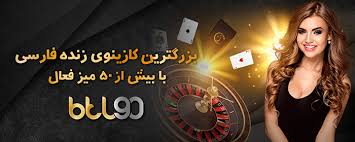Introduction
The Joker card is a unique and versatile card found in many standard decks of playing cards. Distinct from the traditional suits of hearts, diamonds, clubs, and spades, the Joker is often regarded as a wild card and holds special significance in various joker card balance. This article delves into the history, symbolism, and diverse uses of the Joker card in games and culture.
Historical Background
The origins of the Joker card can be traced back to the United States in the mid-19th century. It was introduced as a part of the game of Euchre, where it served as a trump card, a powerful advantage that could dominate the game. As the popularity of card games grew, the Joker began to appear in standard decks, eventually becoming a staple in card games worldwide.
The design of the Joker card has evolved over time, often depicting a jester or clown figure. These designs symbolize trickery and unpredictability, reflecting the card’s role in games. The Joker is often portrayed in vibrant colors, which adds to its distinctiveness in the deck.
Symbolism of the Joker Card
- Wild Card: In many games, the Joker serves as a wild card, allowing players to substitute it for any other card. This versatility can change the dynamics of gameplay, making it a valuable asset.
- Unpredictability: The Joker’s role as a trickster embodies unpredictability, representing the unexpected twists and turns of life. In various cultures, the Joker symbolizes chaos, creativity, and the breaking of societal norms.
- Duality: The Joker embodies duality—both light and dark aspects. It can represent fun and playfulness but also chaos and disorder, reflecting the complexities of human nature.
Uses of the Joker Card in Games
- Card Games: The Joker is widely used in numerous card games, such as Poker, Rummy, and Canasta. Its ability to act as a wild card makes it a powerful tool for players, allowing for strategic gameplay.
- Board Games: Many board games, including Uno and various versions of Monopoly, incorporate Joker-like cards that add special abilities or effects, enhancing the gameplay experience.
- Tarot Cards: In tarot readings, the Joker can be interpreted as the Fool card, symbolizing new beginnings, spontaneity, and taking risks. It serves as a reminder to embrace change and explore the unknown.
- Magic and Illusion: The Joker is often associated with magic tricks and illusions, representing the idea of deception and surprise. Magicians frequently use Joker cards to create suspense and astonishment during performances.
The Joker in Popular Culture
The Joker has transcended its role in card games to become a significant cultural icon. It has appeared in various forms of media, including movies, television shows, and comic books. The character of the Joker in DC Comics, notably as Batman’s arch-nemesis, embodies chaos and unpredictability, reinforcing the card’s symbolic meanings.
In contemporary culture, the Joker often represents rebellion, freedom from societal norms, and the complexities of human emotions. The portrayal of the Joker in films, such as The Dark Knight and Joker, highlights these themes, making it a subject of fascination and discussion.
Conclusion
The Joker card is a multifaceted symbol in the world of gaming and culture. Its origins as a wild card have allowed it to take on various meanings, from representing unpredictability to serving as a powerful asset in card games. The rich history and symbolism of the Joker continue to captivate players and audiences alike, solidifying its place as an enduring icon in both gaming and popular culture. Whether in a deck of cards or as a character in film and literature, the Joker remains a symbol of creativity, chaos, and the unexpected twists of life.


